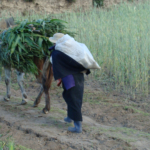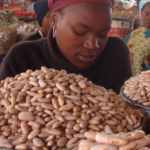


Agriculture Improvement Support Services
Malawi
5/2019—5/2022
Farmers in western Kenya must contend with a range of crop production constraints, including declining soil fertility, existing and emerging pests and diseases, and poor quality seeds. Continuous crop cultivation without replenishment of soil organic matter or nutrients has led to the depletion of soils through crop removals, leaching and erosion. Many smallholder farmers in the region are experiencing declining crop productivity from their farms. The FRN-NGO project is a partnership of five NGOs, scientists and 80 farmer groups, together forming a farmer research network (FRN). The project has been working with 1,600 farmers since 2015 to improve livelihoods and soils. During the previous phase, the project engaged farmers to try different varieties of sorghum and methods of managing Striga, a parasitic weed that thrives on crops when soils are infertile and that suppresses grain yields. This has stimulated interest by farmers in understanding the fertility status of their soils and options for improving them. The availability of the soil testing kit developed by the Soils Cross-cutting project provides a starting point to address this. The incidence of pests and diseases is high in the region, with farmers’ preferred bean varieties among the most heavily attacked. The emergence of fall armyworm and closed kernel smut disease on preferred sorghum varieties are having a devastating effect on yields. Understanding pests and diseases and combining researcher and farmer knowledge to find new, effective and environmentally sustainable ways of addressing these is a priority for the proposed project. Farmers also face serious challenges in accessing good quality seeds of their preferred varieties of sorghum and bean. Supporting local seed production with FRN groups has potential to increase availability of improved seed for smallholder farmers in an affordable and sustainable way.
The overall purpose of the project is to support smallholder farmers in western Kenya to address their agricultural challenges in a sustainable way. The approach is to empower farmers to take control of the research process and find solutions relevant to their own objectives and contexts. The farmer research network focuses on key problems identified by farmers during the current project phase: soil fertility, pests and diseases affecting their food crops, and access to quality seed of preferred varieties.
Specific objectives are to: – Improve farmers’ capacity to carry out research and empower them to lead the research process through FRN, – Support farmers to understand their soil fertility status and to identify and evaluate different soil management options, – Support farmers to identify and evaluate options for Striga control in sorghum, – Support farmers to identify pests and diseases in beans and cereals and test agroecological approaches for managing these, and Develop a local seed system to increase farmer access to good quality seed of preferred varieties in a sustainable way.

